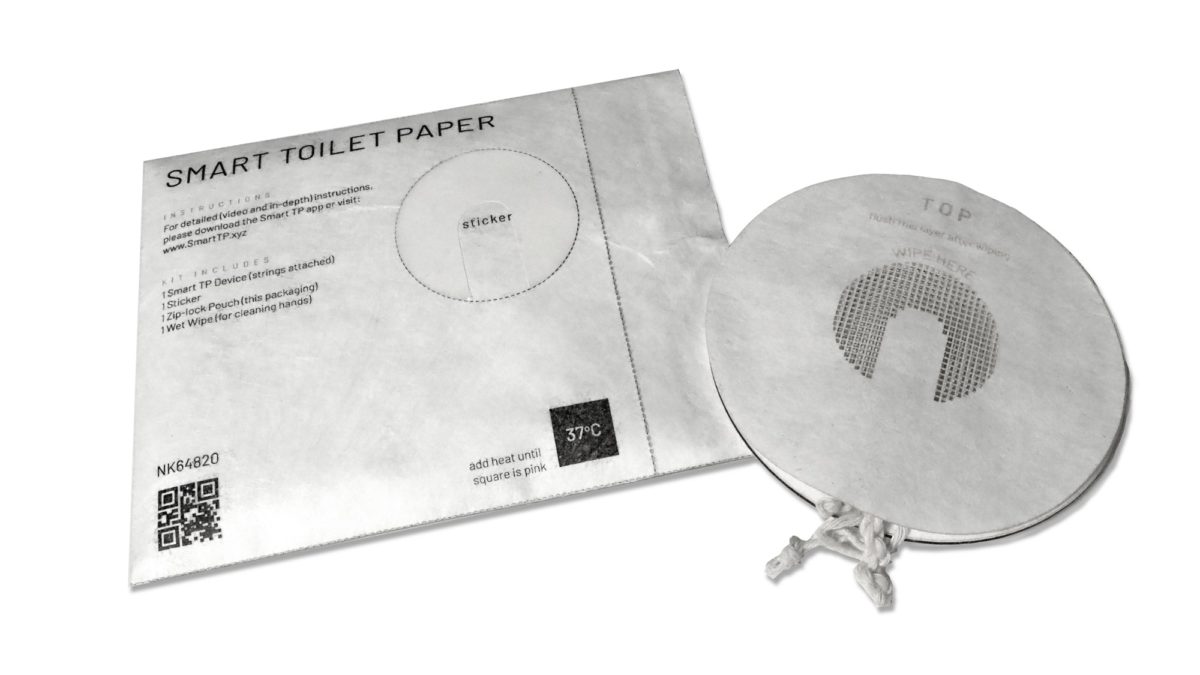Smart Toilet Paper

by Anesta Iwan (MDE ’19) — Recipient of the Outstanding Design Engineering Project Award
Although we frequent the bathroom to rid of our bodily wastes, there’s a lot that we can gather about our health from our feces. There are over 39 trillion microbes that live within the human body (most of which reside in the intestinal track). Contrary to common belief, most of these bacteria contribute towards good health – in terms of helping us digest foods, develop our immune system, and help the overall body systems function.
In a more specific case, current research shows how certain microbial communities within the body can inhibit the drug Digoxin and render the initial prescribed dosage to be inaccurate. Digoxin is typically used to treat patients with heart failures, however because of its narrow therapeutic window, it is critical that it is administered at the right dosage.
Although the procedures and instruments used to analyze and measure the microbiome exist, they are complex and expensive and therefore inaccessible for most individuals who need to frequently monitor their microbiome to keep their dosage (of Digoxin) in check. Can we find a simple and low-cost solution that can effectively track the human microbiome? Can healthcare be simplified that it can reside in the confines of a house? Can the bathroom be the new clinic? How can we assess the relevance of the collected data?
The project explores the design engineering problem through multiple dimensions: design iterations, material selections, fabrication explorations, physics tests, chemistry experimentations, and user tests.
Advisors: Martin Bechthold, Rachel Carmody, Curtis Huttenhower, Peter Stark, Mary Tolikas.